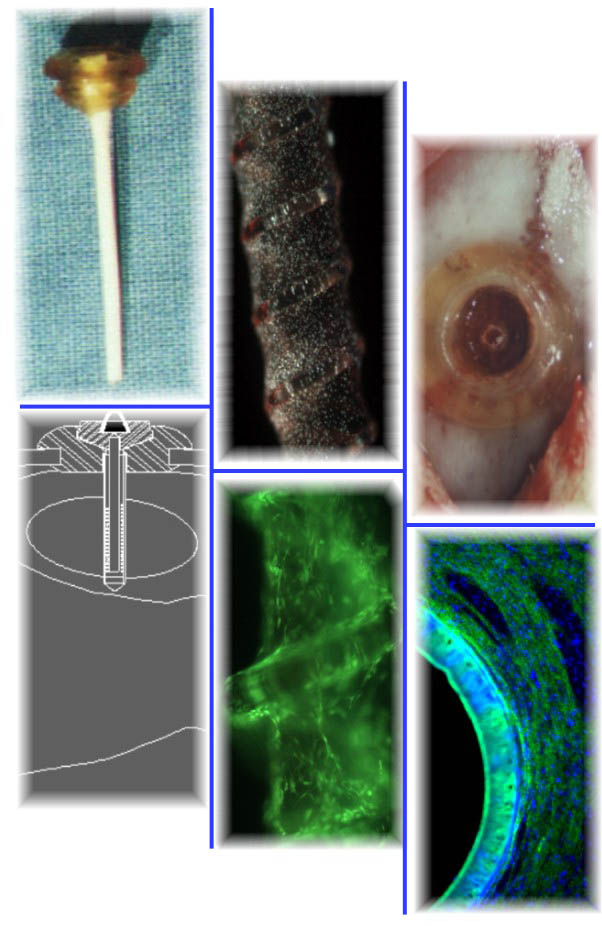|
 We have developed a number of different devices for the local
release of centrally-acting therapeutic substances and to facilitate studies of the mechanism of action of grafted cells. These devices have been successfully used to test the effectiveness of small
molecular weight therapeutic solutes delivered from cells to ameliorate the symptoms of experimental Parkinson's in rodents. We have also previously described an implant that is comprised of an
implanted length of tubular PAN-PVC membrane that can take a curvilinear trajectory with the aid of computer-assisted MRI to target deep brain sites for drug delivery. Most recently, we have
developed a more sophisticated cell encapsulation device that allows one to investigate how different cell types influence tissue remodeling and host response following mechanical injury. Ongoing studies have
shown that the design can be used to successfully implant and retrieve viable cells from the lumen following device implantation from 1day to up to 1 year. We have developed a number of different devices for the local
release of centrally-acting therapeutic substances and to facilitate studies of the mechanism of action of grafted cells. These devices have been successfully used to test the effectiveness of small
molecular weight therapeutic solutes delivered from cells to ameliorate the symptoms of experimental Parkinson's in rodents. We have also previously described an implant that is comprised of an
implanted length of tubular PAN-PVC membrane that can take a curvilinear trajectory with the aid of computer-assisted MRI to target deep brain sites for drug delivery. Most recently, we have
developed a more sophisticated cell encapsulation device that allows one to investigate how different cell types influence tissue remodeling and host response following mechanical injury. Ongoing studies have
shown that the design can be used to successfully implant and retrieve viable cells from the lumen following device implantation from 1day to up to 1 year.
|

